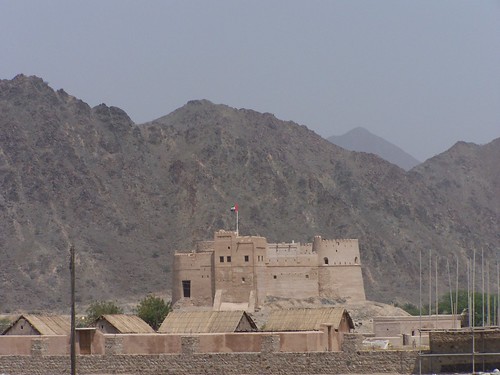CORE 183c: The Middle East
CORE 183C: The Middle East
108 Alumni Hall, 1:20 MW
Dr. Brian Ulrich
Office: 309 Alumni Hall, Ex. 7556 (Office Hours: 10 – 11 a.m. MWF or by appointment)
Required Texts:
Understanding the Contemporary Middle East, 3rd Edition, ed. Jillian Schwedler and Deborah J. Gerner
A History of the Arab Peoples, 1st Edition, Albert Hourani
The Edward Said Reader, ed. Moustafa Bayoumi and Andrew Rubin
Hope and Other Dangerous Pursuits, Laila Lalami
In Search of Islamic Feminism, Elizabeth Warnock Fernea
The Ornament of the World, Maria Rosa Menocal
Reserve Texts with Required Readings:
Electronic reserves found on Blackboard
This course will introduce students to important aspects of the Middle East, with particular emphasis on the deep connections between the Middle East and what we think of today as “the West” both throughout history and in the modern world. Whereas most courses are designed to clarify topics, it is hoped that students will emerge from this one confused about many of the complex issues we will address, but that this confusion is grounded in increased knowledge of the region and a textured understanding of life away from the crisis-inspired headlines that draw many to study it.
Exam dates and due dates for major papers will not change for any reason, and students who have unavoidable conflicts must see me for alternate arrangements as soon as they become known. Small assignments will usually be announced one or two class periods in advance, and will receive reduced credit if handed in late. Occasional quizzes may check student comprehension of readings and other course material and cannot be made up. Attendance in class is mandatory, and missing more than two class periods will result in a reduced participation grade. Participation, however, is more than just attendance, and will reflect your asking and answering of questions and participation in discussions. The instructor may change readings during the course of the semester.
Academic dishonesty will not be tolerated and handled according to Colgate procedures. Any text in taken from another source in an assignment must be noted with quotation marks and the original source indicated. On some assignments, all information, regardless of whether exact words are used, must be cited via footnotes. Furthermore, due to the importance of participation and handing in assignments in a timely manner, misrepresentation of the reasons for an absence or late assignment will be considered a case of academic dishonesty.
Grading:
Major Papers (2): 10% Each
Small Assignments and Quizzes: 20%
Participation: 20%
Mid-Term Exam: 20%
Final Exam: 20%
If you feel you may need an accommodation based on the impact of a disability, you should contact me privately to discuss your specific needs. If you have not already done so, please contact Lynn Waldman at the Office of Academic Support and Disability Services in the Center for Learning, Teaching, and Research. Ms. Waldman is responsible for determining reasonable and appropriate accommodations for students with disabilities on a case-by-case basis, and more generally, for ensuring that members of the community with disabilities have access to Colgate’s programs and services. She also assists students in identifying and managing the factors that may interfere with learning and in developing strategies to enhance learning. Her services are available free of charge to all students.
Schedule of Readings and Major Assignments
September 1 – Intro
September 3 – Gerner and Schwedler, Chapter 2 “A Geographic Preface”; Colbert C. Held, Middle East Patterns: Places, People and Politics, 4th ed, (Boulder, CO: Westview Press, 2006), pp. 137-57.
September 8 – Hourani, Chapters 1, 2, 3; Jonathan Berkey, The Formation of Islam,(Cambridge: Cambridge University Press, 2003), pp. 91-101.
September 10 – Jamal J. Elias, Islam, (Upper Saddle River, New Jersey: Prentice Hall, 1999), pp. 74-81, On-line readings on Sufism and Shi’ism
September 15 – Hourani, Chapters 4, 9; Jane Dammen McAuliffe, “The Tasks and Traditions of Interpretation,” The Cambridge Companion to the Qur’an, (Cambridge: Cambridge University Press, 2006), pp. 181-209.
September 17 – Hourani, Chapters 5, 10; S.D. Goitein, A Mediterranean Society, Vol. II: The Community, (Berkeley, University of California Press, 1971), pp. 273-99
September 22 – Hourani, Chapters 13-16
September 24 – Hourani, Chapters 18-20
September 29 – Hourani, Chapters 21-24
October 1 – Hourani, Chapters 25-26
October 6 – Gerner and Schwedler, Chapter 4, “Middle Eastern Politics”
October 8 – Said, “Orientalism”
October 13 – Examination
October 15 – Said, “Islam as News”
October 20 – FALL BREAK
October 22 – Lalami, whole book
October 27 – Menocal, pp. 101-188
October 29 – Menocal, pp. 189-252
November 3 – Schwedler and Gerner, Chapter 10, “Kinship, Class and Ethnicity” (Major paper due on either Said or Lalami)
November 5 – Fernea, “Uzbekistan”
November 10 – Fernea, “Morocco”
November 12 – Fernea, “Kuwait,” “Saudi Arabia”
November 17 – Fernea, “Egypt”
November 19 – Fernea, “Iraq”
November 24 – Iran Documentary
THANKSGIVING
December 1 – Gerner and Schwedler, Chapter 7, “The Economies of the Middle East,” and Chapter 9, “Population Growth, Urbanization, and the Challenges of Unemployment”
December 3 – Gerner and Schwedler, Chapter 8, “The Political Economy of Middle Eastern Oil” (Major paper due on women in the Middle East)
December 8 – Gerner and Schwedler, Chapter 6, “The Israeli-Palestinian Conflict,” Selections from Israeli blogs
December 10 – Said, “Zionism from the Standpoint of Its Victims”
December 18, 9 a.m. – Final Examination
Labels: Pedagogy


